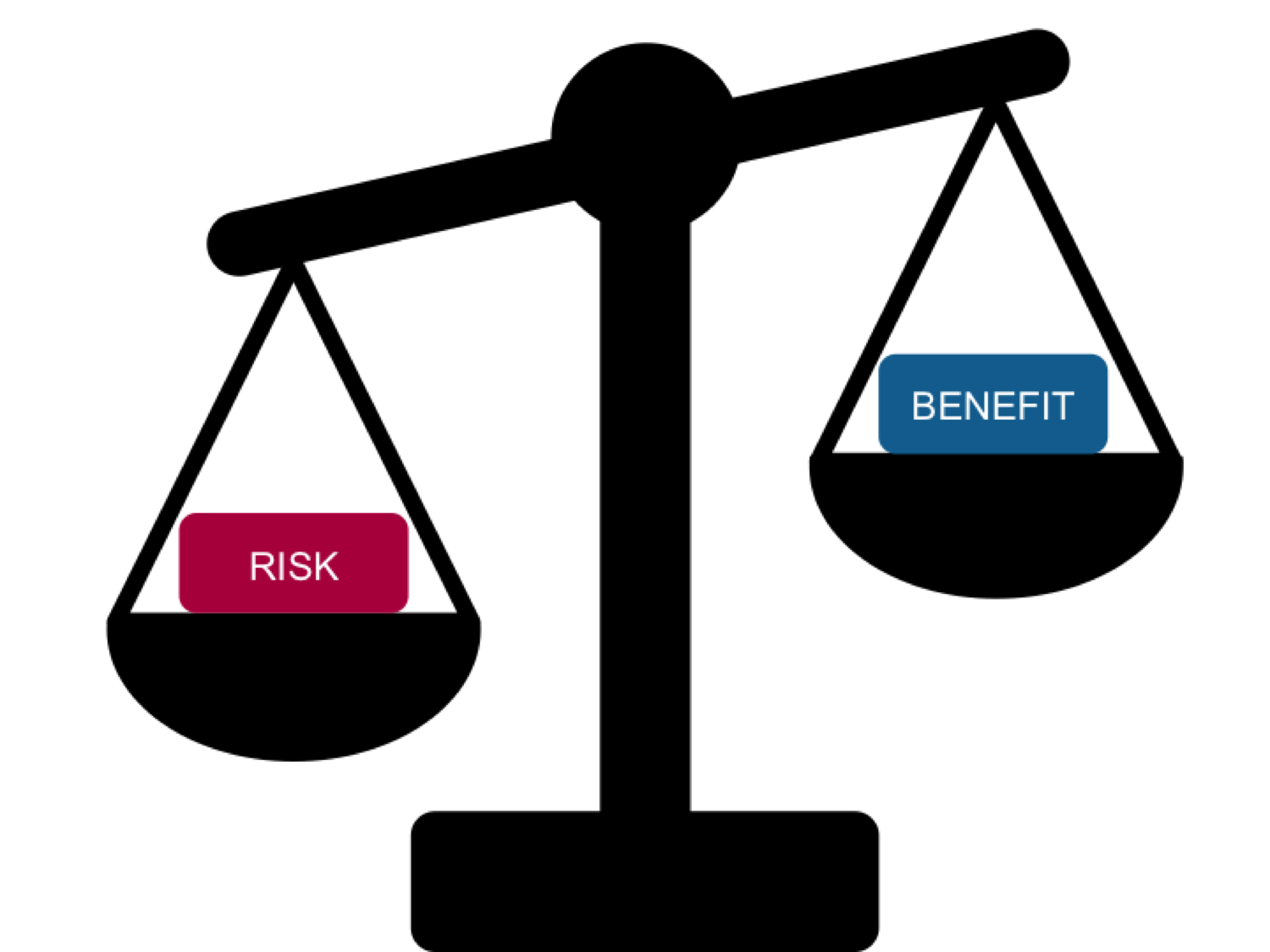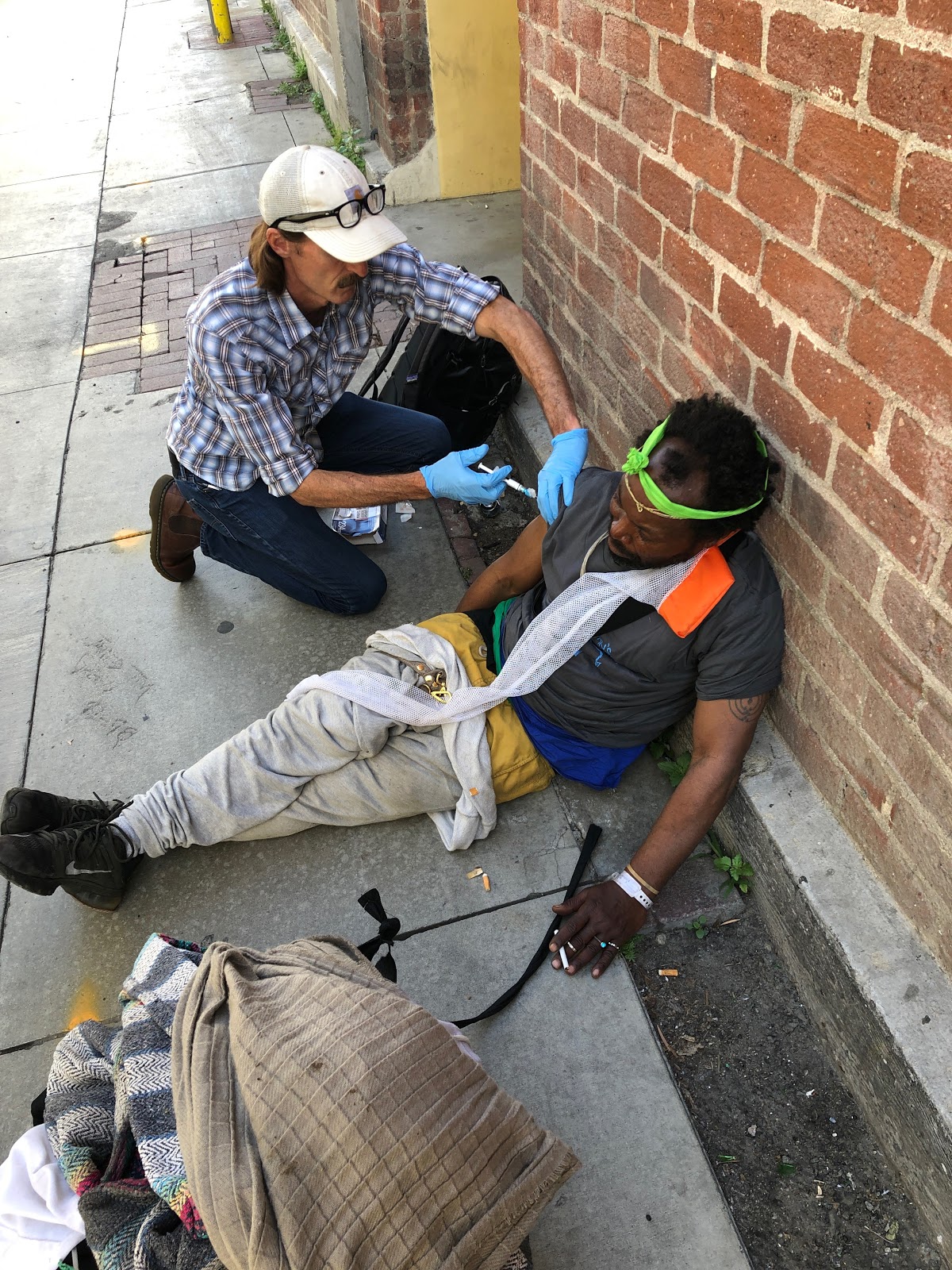The Challenge of Treatment Decisions and Managing Risk
How can we balance lack of adherence to medical treatments with a clinician’s obligation to treat according to the best medical practices available, and to do no harm? When is it ok to compromise best possible practice in order to accommodate a patient’s ability or wishes?
While these factors can complicate treatment in any setting, they are especially acute in street medicine. It is important to keep the unique challenges of this setting in mind when making treatment decisions and to craft a treatment plan together with the patient. Reality-based care plans are the basis of true medical harm reduction.
Key questions to answer:
- What matters most to the patient?
- What are the risks of treatment? What are the risks without treatment?
- How does an unsheltered living situation impact these risks and benefits?
- Is it better for a patient to take some of their prescribed medication rather than none at all?
Figure 12. Dr. King administers an injection for a patient who is unable to access care within clinic walls. Venice Family Clinic Photos.
Examples of challenges to consider:
- Clinician priorities do not always align with patient priorities:
- In the event of an acute condition requiring emergency care, a clinician may be less willing to compromise on the medical plan. The encounter may require extra time to persuade the patient to take necessary action.
- A clinician may be more flexible in delaying health care maintenance such as vaccines or cancer screenings if the patient is not ready or able.
- Clinicians can encounter distinct risks in the field:
- Treatment of psychosis with long-acting antipsychotic injectables in the street has a high benefit to the patient, but the clinician takes on the risk of a negative reaction while already practicing at the limit of their scope of practice.
- Benefits of treatment with anticoagulation when indicated can often be outweighed by the risk of adverse events associated with unreliable adherence.
- If the clinician fails to acknowledge the wishes of the patient, the relationship and the patient’s chances of engaging in care can be jeopardized.
- The high mortality rate among the homeless population weighs in favor of the urgency to treat (on the patient’s terms).

